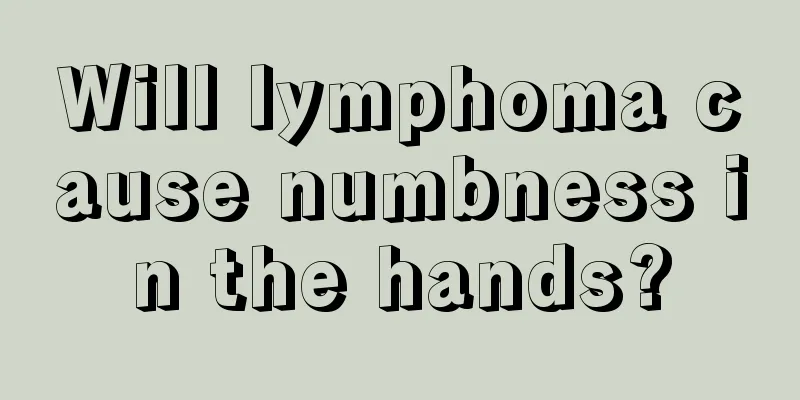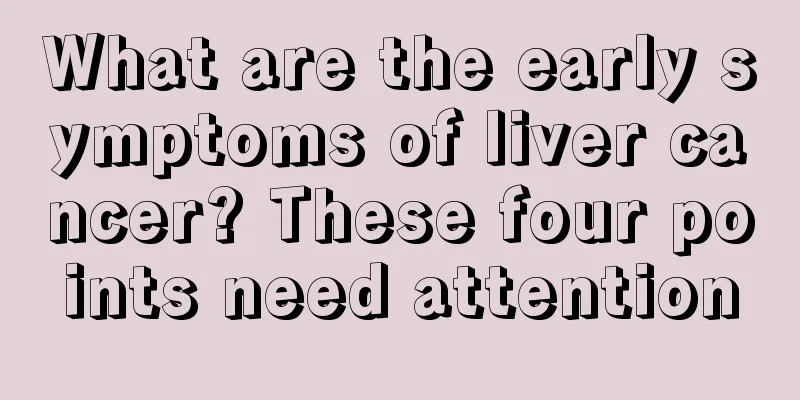What to do if hoarseness occurs in the early stage of laryngeal cancer

|
We all know the harm that laryngeal cancer brings to us, but in addition to the harm caused by laryngeal cancer itself, there are also complications caused by the disease, so we must pay attention to it. In life, many people often feel disgusted and afraid when they suffer from laryngeal cancer, because such a disease brings them too much pain and may take their lives. I believe that every patient and family member is paying attention to the treatment of laryngeal cancer. So how to quickly treat laryngeal cancer after it occurs! 1. Surgery It is the main means of treating laryngeal cancer. The principle of surgery is to first completely remove the tumor, and secondly to preserve or reconstruct the vocal and respiratory functions of the larynx as much as possible. (1) Partial laryngectomy is suitable for early, middle and some late-stage laryngeal cancer. There are many surgical methods, and the following may be adopted depending on the location and extent of the cancer: ① Laryngeal microscopic carbon dioxide laser surgery under supported laryngoscope; ② Laryngeal split vocal cord resection; ③ Vertical partial laryngectomy; ④ Prefrontal partial laryngectomy; ⑤ Horizontal supraglottic partial laryngectomy, also known as horizontal hemilaryngectomy; ⑥ Horizontal vertical partial laryngectomy, also known as 3/4 laryngectomy; ⑦ Subtotal laryngectomy or near-total laryngectomy; ⑧ Supracricoid partial laryngectomy. (2) Total laryngectomy is suitable for some mid-to-late stage laryngeal cancers, primary subglottic laryngeal cancers, recurrent laryngeal cancers, and hypopharyngeal cancers where preservation of the laryngeal structure is not clinically appropriate. (3) Methods for laryngeal function restoration after total laryngectomy include: tracheopharyngeal anastomosis, tracheoesophageal fistula, artificial larynx/electronic larynx, and esophageal voice method. Currently, only partial laryngeal function can be restored. (4) Neck dissection is used to treat the cervical lymph nodes. Depending on the primary site of the cancer and the presence of cervical lymph node metastasis, radical neck dissection, modified neck dissection, or sectional neck dissection can be performed. 2. Radiation therapy There are many radiation sources, including conventional radiotherapy, three-dimensional conformal radiotherapy, intensity modulated radiotherapy, etc. The total dose of radical radiotherapy is 60-70Gy. Applicable to: (1) Vocal cord cancer, unilateral and normal vocal cord activity; (2) supraglottic cancer with lesions smaller than 1 cm; (3) Those who are in poor general condition and not suitable for surgery; (4) If the lesion is extensive and has reached the pharynx, preoperative radiotherapy can be performed with a dose of 45 to 50 Gy within 4 weeks, and surgical treatment can be performed within 2 to 4 weeks after the completion of radiotherapy. (5) Postoperative radiotherapy: usually performed after the surgical incision has healed, and the dose of radiotherapy depends on the specific situation. 3. Traditional Chinese Medicine Treatment It is mainly to prepare for surgery, improve the patient's general condition and organ function, and facilitate surgical treatment. Most of them use qi-tonifying and blood-nourishing or spleen-tonifying qi-tonifying drugs such as Junzi Decoction, Bazhen Decoction, Baoyuan Decoction, Shiquan Dabu Decoction, etc., or adjust them in combination with TCM syndrome differentiation and treatment. Chinese medicine treatment is given in the short term after surgery to restore physical fitness and improve or alleviate certain adverse reactions after surgery, such as low fever, decreased appetite, abdominal distension, and constipation. Treatment usually gives Xiangsha Liujunzi Decoction to regulate the spleen and stomach, Yupingfeng Powder plus or minus to replenish qi and consolidate the exterior, and Zengye Decoction plus or minus to nourish yin and produce body fluid. Long-term application of Chinese medicine conditioning after surgery is to improve physical fitness and minimize and avoid the occurrence of recurrence and metastasis. The above article introduces some quick treatment methods for laryngeal cancer. We hope that understanding these treatment methods for laryngeal cancer can help our patients take correct treatment measures when they suffer from laryngeal cancer, avoid missing the best time for treatment, and strive to ensure that every laryngeal cancer patient receives correct treatment and recovers as soon as possible. |
<<: How to relieve the symptoms of advanced laryngeal cancer
>>: Can early stage nasopharyngeal cancer be cured?
Recommend
How much does it cost to check for nasopharyngeal carcinoma? How to treat late-stage nasopharyngeal carcinoma?
How much does it cost to check for nasopharyngeal...
How to care for lung cancer in the late stage? Seven measures to care for lung cancer in the late stage
As people's pace of life accelerates, many pe...
Causes of Throat Cancer
The incidence of laryngeal cancer is mainly relat...
How to gut a crab
When we usually eat crabs, we often rinse them wi...
Amoxicillin and clavulanate potassium injection
There are many types of drugs, and you cannot cho...
Is angiography painful?
Angiography is actually a very common examination...
Does drinking coffee help you lose weight?
Coffee is one of the three major beverages in the...
What should girls with leg hair do
Girls with a lot of body hair will usually look v...
Is the uterine cancer vaccination effective? Revealing the importance of uterine cancer vaccination
The female uterus is not only a place for the bir...
Loss of appetite and abdominal pain, is it liver cancer? 3 common methods of diagnosing liver cancer
I have no appetite, feel bloated in the upper abd...
Can young people with floaters heal themselves?
Young people are also very susceptible to floater...
Is frequent urination and urgency a symptom of cervical cancer? What should we pay attention to in preventing cervical cancer?
Cervical cancer is a common gynecological disease...
How do you wash ink off clothes?
When children have nothing to do, they like to pl...
What to do if your feet get blisters when wearing shoes
Shoes can protect your feet from injuries and are...
Can you eat cantaloupe and sweet potato together?
Both cantaloupe and sweet potato have the same pr...









